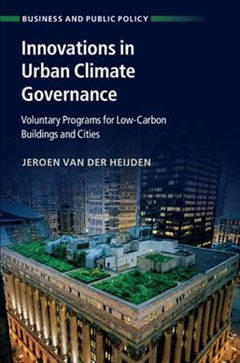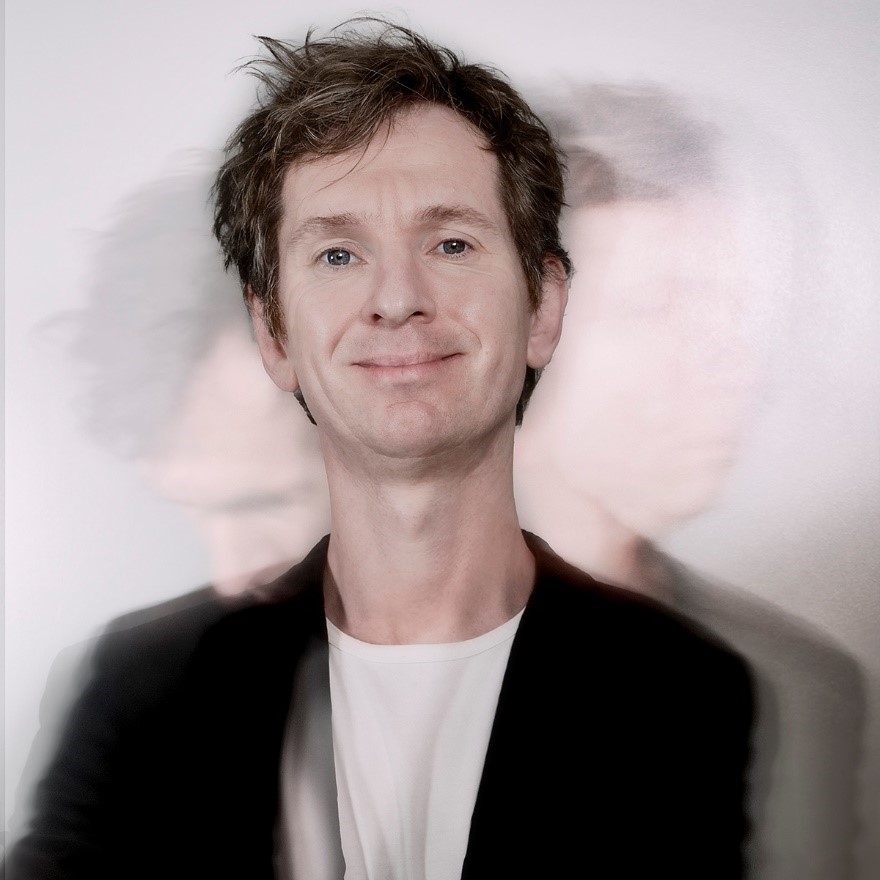
Qualitative Comparative Analysis (QCA) provides a bridge between case-oriented and variable-oriented research methods. It is rapidly making inroads in the social sciences.
This master class is designed for participants who have experience in qualitative or quantitative research and who are interested in applying qualitative comparative analysis (QCA) in their current or future studies.
Professor Jeroen van der Heijden – With 20+ years of international research experience, Jeroen specializes in climate change solutions for urban environments, encompassing both mitigation and adaptation strategies. His journey includes an MSc in Architecture and Ph.D. in public administration from TU Delft (Netherlands) and academic roles at institutions worldwide, including professorships at the Australian National University (Australia), Amsterdam University (Netherlands), and the Victoria University of Wellington (New Zealand). He has authored over 80 peer-reviewed articles, 70 book chapters, and notable books on urban climate governance and action—many of which include applications of QCA.
Since 2007, he has been applying QCA in various research projects and has been teaching the method since 2017. More information on Jeroen’s work is available from www.jeroenvanderheijden.net.
This is an introductory master class. QCA is not necessarily a difficult method to learn, but it requires a good understanding of the basics to be able to apply it well. Think of QCA as a research approach and a data analysis technique. Most people new to QCA are particularly interested in the promises of QCA as a data analysis technique (data analysis based on standardized algorithms, supported by appropriate software). But to understand and grasp how QCA operates as a technique, it is essential to understand it as an approach as well. The expression ‘you need to be able to walk before you can run’ holds here as well.
This introductory masterclass therefore is all about understanding the basics of QCA. In it, we will explore the foundations of QCA and question what the method can and cannot be used for. The master class will introduce participants in (i) the epistemological foundations of QCA; (ii) the logic of QCA through applied exercises (by hand and with computer support); (iii) the boundary conditions for QCA (when you can and cannot apply it); and, (iv) common challenges for those new to QCA.
By the end of the master class, you will be able to assess whether QCA is a meaningful approach for your current or future research projects. You will also be able to assess, to some extent, the quality of QCA applications by others.
By the end of this two-day master class you will be able to carry out a very rudimentary QCA analysis, but not a full QCA application. Participants who wish to be able to do so are advised to (also) complete the master class Qualitative Comparative Analysis: An application in 10 steps.
The target audience for this master class are researchers, practitioners and academics who have conducted at least one qualitative study, and are familiar with the process and context of qualitative research. The master class is a combination of lectures, group discussions, and QCA exercises.
Day 1
• 9:30-10:00, Introductory session:
◦ Who is who? Why have you chosen this course? What do you expect to get out it?
◦ What are we going to do over the next two days? What are we not going to do?
• 10:00-11:00, So you think QCA is right for you?
◦ Why do you want to use QCA?
◦ QCA in a nutshell
• 11:00-11:15, Short break
• 11:15-12:30, Epistemological foundations of QCA:
◦ What are the epistemological foundations of QCA?
◦ Where is QCA positioned in relation to case-oriented and variable-oriented research?
• 12:30-1:30, Lunch
• 1:30-2:30, Getting an understanding of the very basics of QCA (1)
◦ QCA analysis by hand.
• 2:30-2:45, Short break
• 2:45-3:30, Getting an understanding of the very basics of QCA (2)
◦ QCA analysis in Excel (using an add in)
• 3:30-4:00, Open discussion, recap of today’s terminology and concepts:
◦ Condition, outcome, conjunctural causation, equifinality, asymmetry, necessary condition, sufficient condition, logical minimisation.
• 4:00, Day ends
Day 2
• 9:30-10:00, The best scenario for your QCA
◦ The best scenario (and how to achieve it)
• 10:00-11:00, The worst scenario for your QCA
◦ The worst scenario (and how to prevent it)
• 11:00-11:15, Short break
• 11:15-12:30, Truth tables
◦ Truth table as central element of QCA
◦ Creating a truth table by hand
◦ Creating a truth table in Excel (using an add in)
• 12:30-1:30, Lunch
• 1:30-2:30, common challenges for those new to QCA (1)
◦ What motivates your choice of QCA?
◦ What is the difference between correlation and set-theoretic relations?
• 2:30-2:45, Short break
• 2:45-3:30, common challenges for those new to QCA (2)
◦ Is the number of cases all that matters?
◦ How many conditions can be included in the theoretical model?
◦ The challenge of limited diversity
• 3:30-4:00, Open discussion, recap of today’s terminology and concepts:
◦ Truth table, set relationship (vs correlation), limited diversity
• 4:00, Workshop ends
This course will take place in a classroom. Participants are advised to bring a laptop with MS Excel installed.
Participants will be expected to have experience with at least one qualitative research project or have undertaken an introductory level course in qualitative research methods. While some discussion of the technical elements of methods is presented during master class, participants should have a basic familiarity with data collection methods such as interviews, observation, and document analysis.
The instructor's bound, book length course notes will serve as the course text.
- Schneider, C. and C. Wagemann (2012). Set-Theoretic Methods for the Social Sciences. Cambridge, Cambridge University Press.
- van der Heijden, J. (2017). Innovations in Urban Climate Governance: Voluntary Programs for Low-Carbon Buildings and Cities. Cambridge, Cambridge University Press.
Other readings:
- Ragin, C. (2008). Redesigning Social Inquiry: Fuzzy Sets and Beyond. Chicago, Chicago University Press.
- Rihoux, B. and C. Ragin (2009). Configurational Comparative Analysis. London, Sage.
Q: Do I have to have had any qualitative research experience to do this course?
A: Yes, you will have been expected to have experience with at least one qualitative research project or have undertaken an introductory level course in qualitative research methods.
Q: Do I have to have had any experience with QCA to do this course?
A: No, but it is strongly recommended to familiarise yourself with the recommended texts before participating in this master class; particularly Schneider and Wagemann (2012).
Q: I already have some experience with QCA. Will I get anything out of this introductory course?
A: You absolutely will. Dr
Professor Jeroen van der Heijden – With 20+ years of international research experience, Jeroen specializes in climate change solutions for urban environments, encompassing both mitigation and adaptation strategies. His journey includes an MSc in Architecture and Ph.D. in public administration from TU Delft (Netherlands) and academic roles at institutions worldwide, including professorships at the Australian National University (Australia), Amsterdam University (Netherlands), and the Victoria University of Wellington (New Zealand). He has authored over 80 peer-reviewed articles, 70 book chapters, and notable books on urban climate governance and action—many of which include applications of QCA.
Since 2007, he has been applying QCA in various research projects and has been teaching the method since 2017. More information on Jeroen’s work is available from www.jeroenvanderheijden.net.
The course was excellent - well paced, targeted, relevant. The presenter was friendly, very knowledgeable and gave participants lots of opportunity to ask questions. (Online Summer 2021)
The instructor's bound, book length course notes will serve as the course text.
